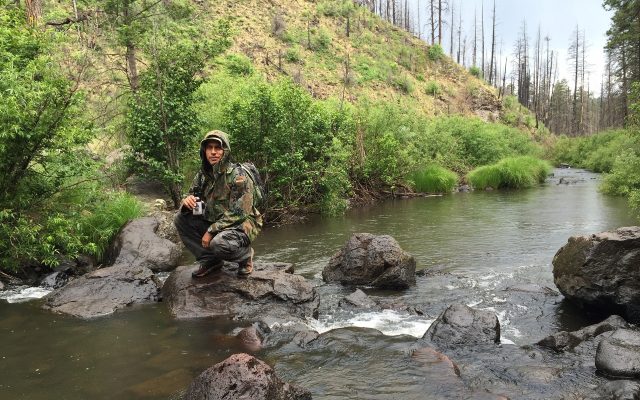Leadership Forces was founded two years ago next month. Anniversaries are a good point to pause and reflect. A chance to look at the past and consider what has worked and what hasn’t. It creates an opportunity to look to the future with a view to ‘doubling down on what has worked’ and killing off the activities that haven’t.
I thought it might be helpful to share some of the lessons that I have learnt along the way, the successes and failures that have shaped my thinking with a view to helping others not make the same mistakes that I did.
Lower the Bar – Survival is Winning
Many people will tell you that you have to aim high to be successful. I am not sure that I’d agree with that now. Most businesses fail within in the first 2-3 years, I don’t know the statistics but the proportion is high.
In the early stages, survival is winning.
The barrier to the leadership development market is low. Technically, anyone can call themselves a leadership development expert. In an unregulated market, it is difficult to seperate the amateurs from the experts. It’s also hard to measure ROI on leadership development, hard but not impossible. These factors aren’t unique to the leadership development market. But it does mean that buyers in this market buy almost exclusively based on referrals or introductions.
Initially, this creates a problem because you have to start somewhere. Climbing the batting order so that when someone has a ‘people based challenge’ or a ‘leadership issue’, it means they call you first is difficult. The way I have coped with this is by working as a day-rate contracted associate for other people or businesses. I have worked with some fantastic people on an associate basis who I would argue are exceptional at what they do. Working with them has ‘kept me alive’ but also created the opportunity to work with some interesting clients helping them solve some difficult problems.
In the first two years, staying alive is beating the odds. Lower your expectations, lower the bar and concentrate on survival.
Survival is about managing the risks of the things that will kill you. If you truly understand the following, you’ll stack the deck – and your chances of surviving – in your favour.
Understanding Value
I learnt about ‘understanding value’ from two places. The first was a youtube video with a brash American salesman called Grant Cardone. He talked about value and price as being two seperate concepts which to be honest, I didn’t really understand. Dom Moorhouse built on this when I shared my business plans with him and went on his ‘Five Year Entrepreneur’ course. I am probably going to butcher this explanation but this is how I see it:
Value is all about what people want. It is dependent upon the individual and their set of circumstances. If you’re sat at home and try and sell someone a glass of water on a cool day, they probably won’t pay you much for it because the value to them is low.But take the same person, put them in the desert, force them to walk ten miles in 40 degree heat without water and ‘offer to sell them a glass of water’ and if their life depended on it, they’d probably give you everything they had. The circumstances have changed and so has the value.
Reflection on the understanding of value takes me back to Lympstone and training for the Royal Marines. On exercise, when you are almost always too cold or too hot, tired and hungry, you will pay a lot of money for something that makes your life fractionally easier. That expensive gas stove that means you can flash boil a litre of water suddenly becomes valuable in the field because the faster you can get a hot drink inside you, the faster you can do the other tasks you need to and then get to sleep. On a camping trip when you are not under the same amount of pressure – the ability to flash boil water probably isn’t there!
This is why there is a massive market for items that will help babies sleep. When you are sleep deprived, you value sleep, so you will pay any amount to get it!
These days, businesses need to be prepared to give value away for free. Creating content is the most common way they do this. Writing blogs, recording podcasts and filming youtube videos are all forms of value designed to build a relationship with the business. It’s one of the reasons I write every week. It allows people to get an insight into how I think.
But that’s secondary to the main reason I do it. I’ve written before about the OODA loop. The process of orientation is a combination of ‘ingesting quality information and understanding it’. If I force myself to write, I have to think about what I have learnt and share the ideas in a logical considered manner. This is a process that develops my thinking and has a compound interest effect for my learning.
Understanding Quality
If you are working with or for someone and the outcome is anything less than ‘absolute delight’, you’ve done something wrong. This deep sense of accountability is vital because it forces you to properly understand the client’s problem and create something that helps them to solve it. If you fail to meet the expectations you have set in anyway, you are damaging your reputation. It’s like a small hole beneath the waterline of a ship. It might not sink you but if you get enough of them it certainly will.
Your professional reputation has to be exceptional in order to drive referrals. You need to be ruthless in your approach to clarity, accountability and making sure your clients are happy with what you have done.
This goes for partnerships as well. There are a lot of people out there who will promise you the world and deliver nothing. Be wary of organisations and people that offer what looks like a win:win partnership when the reality is different. I think you only learn this through experience and by asking challenging questions. If someone claims to be an expert in anything, ask them how they have applied that to their business. If they haven’t then they’re aren’t practising what they preach which means they don’t believe in it or haven’t got the discipline to execute it. Either way, these are red flags to steer clear,
Create Boundaries
Time is the most valuable resource that you have. A small business can literally take over your life if you let it because there is always more to be done.
Boundaries and structure can save you from destroying the most important things in your life – your mental and physical wellbeing and the relationships with those you care about.
The majority of people in the corporate world spend too much time in the office. It’s one of the reasons that UK Productivity is so low – we have a culture where ‘being busy’ is rewarded over ‘adding value’. The reason for this is that it’s very difficult to measure value-added in the service industry. It’s far easier to measure ‘hours spent at work’ and take that as a sign of productivity and commitment.
If you think that you can work 100hrs in a week and sacrifice sleep, exercise and a good diet in pursuit of ‘getting more done’ – you are on the fast-track to burnout – and the journey to get there is filled with poor decisions and mistakes owing to a completely compromised lifestyle.
Pilots are not allowed to work when they haven’t had enough sleep. Lives depend upon them doing a good job.
The point is that you need to create boundaries and structures that help you perform whilst preventing you from compromising. For example, I have found that unless I exercise first thing in the morning, I simply cannot ensure that I get it done.
So the day starts at 0530. Wake-up, brush teeth, cold water on the face, read ‘the daily stoic’, meditate for ten minutes, lift kettlebells or do interval training, get Charlotte up (my four year old daughter), make breakfast for both of us, change into a suit, pack my bag, leave the house at 0745.
In order to do this, I need to start getting ready for bed at 9pm. This sounds early but the fact is that all of the previous activities are infinitely harder if I have not had enough sleep. Tomorrow starts this evening.
This process means that I get enough exercise, manage my mental health and see both my children before the day starts. When you think about it, you will spend 80% of your time with your kids before they are 18. Once they hit that age, they’re off making their own path in the world. You cannot get that time back like you can’t get your health back if you destroy it by neglecting to exercise and eat well.
Learning
Lastly, create time to learn. I know that I can develop good leaders. It is something I am deeply passionate about and something that I believe I am good at. But there is this whole other role that I need to learn about – how to run a successful business. If I fail to do that, then it doesn’t matter how good I am, I am not going to be able to pay the bills.
I have found the approach by Daniel Priestley to be useful. His books ‘Oversubscribed’ and ‘Key Person of Influence’ are well written and I think his approach is valid. I suspect it is an amalgamation of different approaches and techniques but that’s irrelevant. His arguments make sense and I’ve found it helpful to follow his guidance.
These five elements are probably cliches, but that doesn’t mean people follow them. Many people will have read Priestley’s books but will fail to put his advice into practice. As Tim Ferriss states, ‘If information was all we needed, the internet would have made us all billionaires with six-packs’.
Keeping Perspective
Surviving the past two years has been a constant exercise in learning by making mistakes. These are some of the lessons I have learnt along the way and fortunately the mistakes I’ve made have not been fatal.
Who knows what will happen over the next two years. The business might come crashing down and fail spectacularly and to be honest, it doesn’t matter. Yes I’ll be disappointed but I will get over it. I only have to watch the news to remind myself that 99% of the world’s population have it much harder than I do.
When you enjoy what you do for a living, it doesn’t matter if you do it for yourself or someone else. So if I can’t build a great leadership development business, I will just help someone else to. Not everyone can be the front-man and provided I am working towards the higher purpose of developing leaders, it doesn’t make a difference if I do it for myself or I help someone else to do it.
Article by channel:
Everything you need to know about Digital Transformation
The best articles, news and events direct to your inbox
Read more articles tagged: Featured, Leadership







